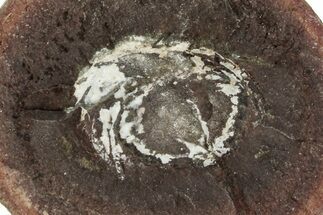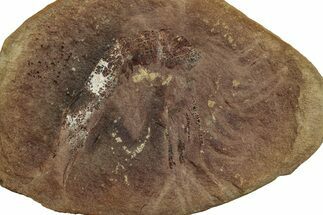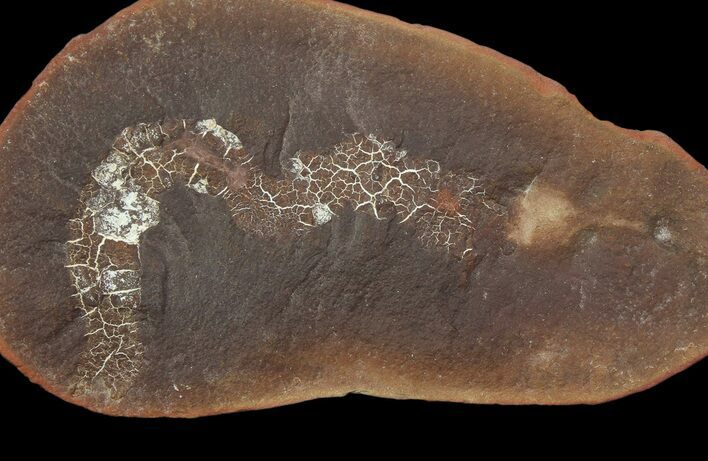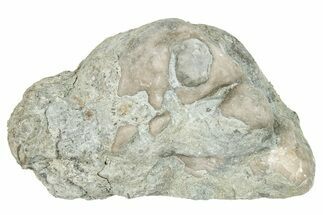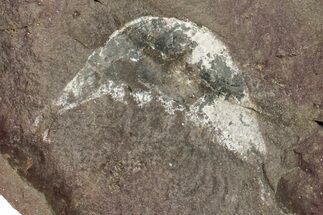This Specimen has been sold.
4" Fossil Sea Cucumber (Achistrum) (Pos/Neg) - Mazon Creek
This is a very nice fossil sea cucumber (Achistrum sp) from the 300 million year old Mazon Creek fauna. It's preserved inside a ironstone nodule that was split open, over 4" long and highly detailed. Both halves of the nodule are included.
The Mazon Creek fossil beds are a deposit with exceptional fossil preservation, known as a conservation lagerstätte, located in Illinois. This location of late Paleozoic (~307 million years old) biota ranks among the great fossil sites around the world. The large variety of fossils collected here vary between plants and animals, including soft-bodied and insect preservations. Fossils from this site are often quite detailed and are preserved within siderite (iron carbonate) nodules.
Over 500 animal and 200 flora species have been described from Mazon Creek. The event that caused this die-off and preservation is believed to have started with a catastrophic flood event that buried the biota of the modern day Mazon Creek area. The deposition of river-borne silt and clay, brought on by upland erosion and delta progradation, contributed to the incredible preservation of one of the most complete records of Paleozoic biota.
This site has been collected for more than 100 years, and likely will continue to be collected by both professionals and amateurs for many years to come.
Over 500 animal and 200 flora species have been described from Mazon Creek. The event that caused this die-off and preservation is believed to have started with a catastrophic flood event that buried the biota of the modern day Mazon Creek area. The deposition of river-borne silt and clay, brought on by upland erosion and delta progradation, contributed to the incredible preservation of one of the most complete records of Paleozoic biota.
This site has been collected for more than 100 years, and likely will continue to be collected by both professionals and amateurs for many years to come.
SPECIES
Achistrum sp.
LOCATION
Grundy County, Illinois
FORMATION
Francis Creek Shale, Carbondale Formation
SIZE
Over 4" long, Nodule 4" long
CATEGORY
ITEM
#92501
We guarantee the authenticity of all of our
specimens. Read more about our
Authenticity Guarantee.
specimens. Read more about our
Authenticity Guarantee.
 Reviews
Reviews


